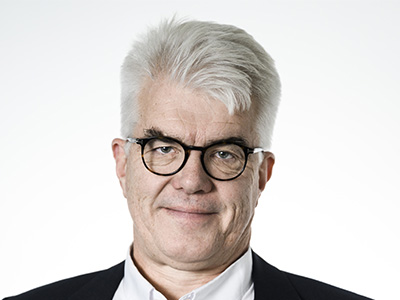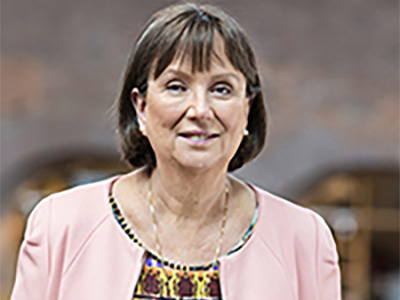KTH initiates more and new collaborations around the world

KTH has set its sights on developing international collaboration at all levels with universities in the USA, Africa and Europe. South Korea will be an individual country in focus.
“As a university on the global stage, we are actually punching above our weight when it comes to the size and number of our international collaborations,” says Stefan Östlund, Vice President for Global Relations at KTH.
He and Sigbritt Karlsson, President, discuss KTH’s international forward march, challenges, and vision for the future.

As with many other areas, the pandemic has entailed a huge setback for exchanges and travel. One consequence of this has been that cooperation within Europe and the Nordic region has become increasingly important.
“A large number of research collaborations are in progress in Horizon 2020, the EU Framework Programme for Research and Innovation, and shortly Horizon Europe. But we have also laid the foundations for continued cooperation with several British universities,” says Karlsson.
KTH has five strategic partner universities around the world today with established collaborations within both research and education with common master and doctoral degree programmes. Added to which, KTH cooperates to varying degrees with around 200 universities. These collaborations are often based on student exchanges but do not include co-publications between individual researchers worldwide.
China and India have long been key countries for KTH. Is this in the process of changing?
“No, but global relationships develop all the time and KTH prefers to have more strings to its bow. Via our development plan and international strategy, prioritisations are made in both the short and the long-term. There are barely any teachers/researchers at KTH today that do not have some forms of international relationships,” says Östlund.
“We can initiate certain cooperation that helps to open doors, maybe to countries where it is difficult to get your foot in the door and establish contact as an individual researcher. We are now enjoying the fruits of systematic internationalisation work over the last 25-30 years at KTH. Hopefully, those initiatives we have started in recent years will strengthen KTH even further.”

“There is extensive competition on the international academic arena where rankings are decisive,” says Karlsson.
Several things to take into account can be the geopolitical situation at the time and how good an education and research match a country is for KTH’s profile.
People often talk about how complex the world has become. What kinds of challenges are there?
“Well, these can range from political tensions, pandemics, to less travel and choosing to study online or in your own local area instead. It can be that researchers do not want to relocate their whole family,” says Karlsson.
“In general, there are a few domestic obstacles in the form of plenty of red tape and bureaucratic rules about the use of scholarships and changes to visa laws,” says Östlund.
What are you most proud of when it comes to KTH on the international stage?
“I don't mean to sound snobby, but when you travel around the world, KTH is one of the few if not the only Swedish university people have heard of.”
“Or of our good reputation is maybe a better phrasing. We have many world stars among our researchers and our students are acknowledged to be very bright. As a Swedish university, supporter of democracy and defender of academic freedom, we have an important role to play,” says Karlsson.
Text: Jill Klackenberg
